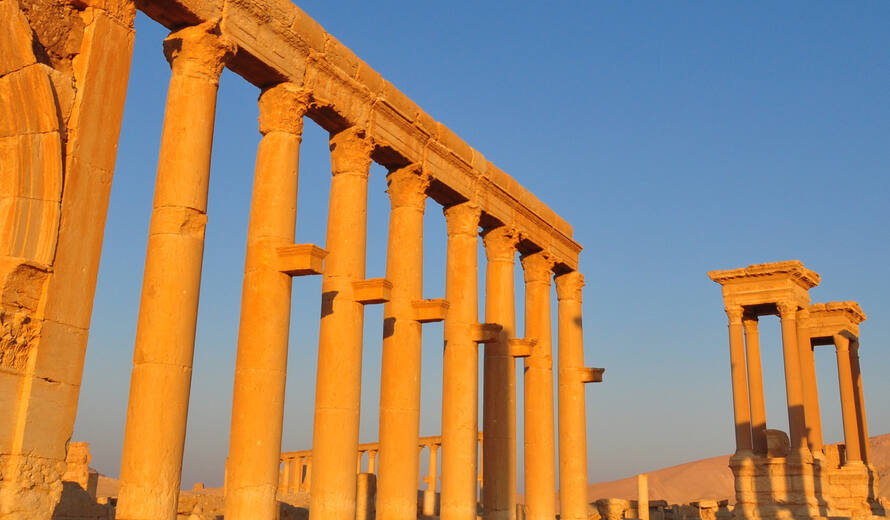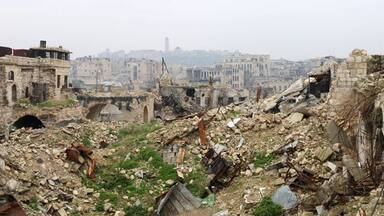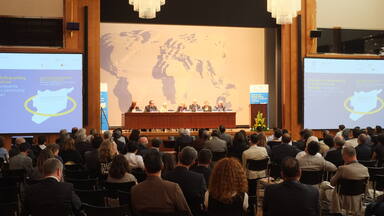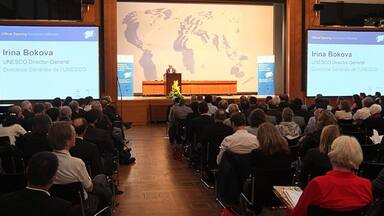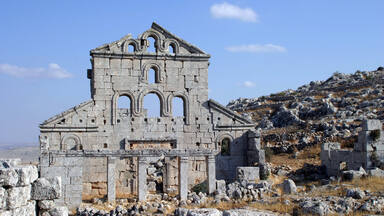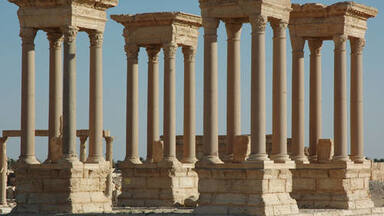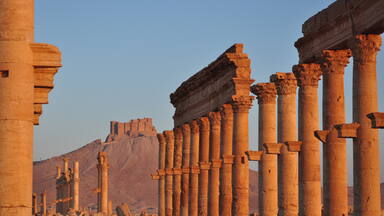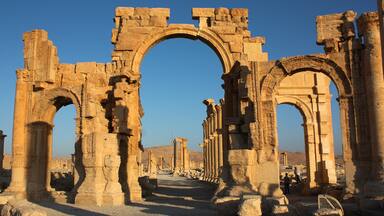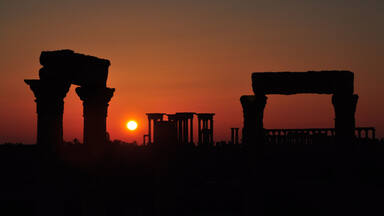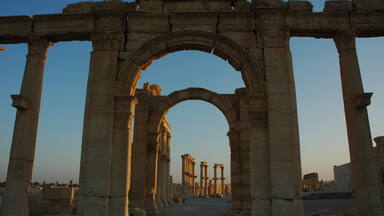UNESCO reiterates call for unity and coordination to protect Syrian Cultural Heritage
In the context of the ongoing destruction and rapidly evolving situation of World Heritage sites in the Syrian Arab Republic, UNESCO held several information meetings in April to assess the situation and discuss the way forward.
During an information meeting for all Member States held on 4 April at UNESCO Headquarters, Director-General Irina Bokova recalled the need for a global approach and the role of UNESCO as a universal platform for ensuring coordination among all stakeholders:
"Palmyra belongs to the whole of humanity and to all Syrians. All Syrians, together, must be able to reclaim this heritage as a symbol of identity and dignity. Palmyra cannot be disassociated from other sites, like Aleppo or the Crac des Chevaliers, which have suffered heavy damage. The protection of heritage is inseparable from the protection of human lives, taking into account the wounds and sufferings of the population during the conflict underway."
On 7 and 8 April, during the plenary debate of the 199th session of the Executive Board, the Director-General emphasized UNESCO's position and determination:
"In Palmyra, the first emergency is to assess the damage. UNESCO will send an international damage assessment mission as soon as security permits. We will also convene an international coordination conference on emergency safeguarding measures for Syrian heritage. In times of turbulence, our coordination role is more important than ever. We can make this a symbol of unity for the international community. I welcome this spirit of unity that marked the first meeting of the ‘Group of Friends United for Heritage.’ I also commend all partners who have already joined hands with us in this effort, notably the European Union, Flanders, Austria, and many others,” said the Director-General.
UNESCO was informed that the Directorate-General of Antiquities and Museums of Syria started a very preliminary damage assessment survey of the site and the museum in Palmyra. As requested by the World Heritage Committee, Syria was urged "to safeguard damaged properties through minimal first aid interventions (…), and refrain from undertaking conservation and reconstruction work until the situation allows, for the development of comprehensive conservation strategies and actions that respond to international standards in full consultation with the World Heritage Centre and the Advisory Bodies” (see link https://whc.unesco.org/en/decisions/6252).
UNESCO will lead coordinated action with stakeholders, including international and academic institutions, the Syrian civil society both in the country and in the Diaspora. UNESCO has developed comprehensive action plans to coordinate international assistance for the safeguarding of the cultural heritage of Syria. UNESCO already works with all stakeholders in the framework of its project for the protection of Syrian Heritage launched in 2014 with the support of the European Union, Austria and Flanders, and implemented by the UNESCO Field Office in Beirut. An Internet platform “Observatory of Syrian Cultural heritage” was established in March 2014 to collect information on damage, destruction and looting, as well as disruptions to intangible heritage practices and transmission. UNESCO has provided training to more than 125 professionals for emergency protection of cultural heritage. Strengthened capacity have triggered 12 safeguarding initiatives on the ground, reflecting principles and objectives of UNESCO Conventions and with broad participation of communities. UNESCO has also organized several technical meetings with the expert community to discuss preservation and restoration approaches.
Decisions (1)
The World Heritage Committee,
- Having examined Document WHC-15/39.COM/7A,
- Recalling Decisions 35 COM 7B.58, 36 COM 7B.58, 37 COM 7B.57, and 38 COM 7A.12, adopted at its 35th (UNESCO, 2011), 36th (Saint-Petersburg, 2012), 37th (Phnom Penh, 2013) and 38th (Doha, 2014) sessions respectively,
- Deplores the conflict situation prevailing in the country, the loss of human life and the degradation of humanitarian conditions;
- Takes note of the report provided by the State Party regarding the state of conservation of the six Syrian World Heritage properties and the 12 sites inscribed on the Tentative List and the report on intentional destruction of cultural heritage in Syria and expresses its utmost concern at the damage occurred and the threats facing these properties and cultural heritage in general;
- Urges all parties associated with the situation in Syria to refrain from any action that would cause further damage to cultural heritage of the country and to fulfil their obligations under international law by taking all possible measures to protect such heritage, in particular the safeguarding of World Heritage properties and the sites included in the Tentative List;
- Also urges the State Party to adopt measures for the evacuation of World Heritage properties being used for military purposes;
- Further urges the State Party to safeguard damaged properties through minimal first aid interventions, to prevent theft, further collapse and natural degradation, and refrain from undertaking conservation and reconstruction work until the situation allows, for the development of comprehensive conservation strategies and actions that respond to international standards in full consultation with the World Heritage Centre and the Advisory Bodies;
- Launches an appeal to all Member States of UNESCO to cooperate in fighting against the illicit trafficking of cultural heritage coming from Syria as per the United Nations Security Council Resolution 2199 of February 2015;
- Reiterates its suggestions to the State Party to consider ratifying the Second Protocol (1999) of the 1954 Hague Convention for the Protection of Cultural Heritage during times of Armed Conflict;
- Commends the Directorate General of Antiquities and Museums (DGAM), and all the heritage professionals and the local communities in Syria who are working on monitoring and protecting cultural heritage, for their sustained efforts amidst extremely difficult conditions;
- Requests the State Party to pursue the systematic documentation of all damage incurred by the World Heritage properties whenever conditions allow and to implement all possible risk mitigation measures, to inform on the development of the Desired state of conservation for the removal of the properties from the List of World Heritage in Danger (DSOCR) and the identification of corrective measures for all six properties;
- Calls upon the international community to further support the safeguarding of Syrian cultural heritage through earmarked funds;
- Also requests the State Party to invite, as soon as the security conditions allow, a joint World Heritage Centre/ICOMOS/ICCROM Reactive Monitoring mission to Syria to assess the state of conservation of the properties and elaborate, in consultation with the State Party, a prioritized action plan for their recovery;
- Further requests the State Party to submit to the World Heritage Centre, by 1 February 2016, an updated report, including a 1-page executive summary, on the state of conservation of the property and the implementation of the above, for examination by the World Heritage Committee at its 40th session in 2016.
